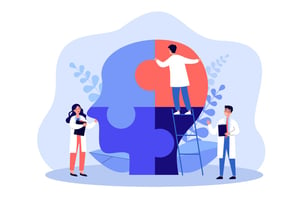Before closing on May 26, the World Health Organization’s Sixty-fifth World Health Assembly adopted...
International Adoptees Found to Have More Mental Health Problems as Adolescents
 |
Researchers at the Norwegian Institute of Public Health analyzed 11 studies, which included 17,919 adoptees aged 12 to 19 and 1,090,289 aged-matched, non-adopted peers. The studies included both questionnaire-based studies that used parental or self-reporting of problems and register-based studies where mental health problems were gleaned from health record data.
The analysis revealed that international adoptees had higher scores on total mental health problems than non-adopted peers, with register-based studies showing a greater standardized mean difference (0.70) than questionnaire-based studies (0.16). There were greater differences between adoptees and non-adoptees when categorical measurements of mental illness, indicating more serious problems, were used. Among the questionnaire-based studies, mental health differences between international adoptees and their peers were larger when using parent reports compared with self-reports.
Neither age at adoption nor sex appeared to influence the likelihood of mental health problems in the adopted youth.
“It is important to stress that children who are adopted internationally benefit from the change adoption provides and show positive development after adoption,” the authors concluded. “However, although most internationally adopted adolescents are well adjusted, the increased risk of mental health problems must be acknowledged to facilitate the prevention of such problems in this group. … Adoption-related competence can be gained by contacting local adoption agencies for information or by internet-based training, which is provided by, for instance, the Center for Adoption Support and Education in the United States.”
(Image: iStock/monkeybusinessimages)





